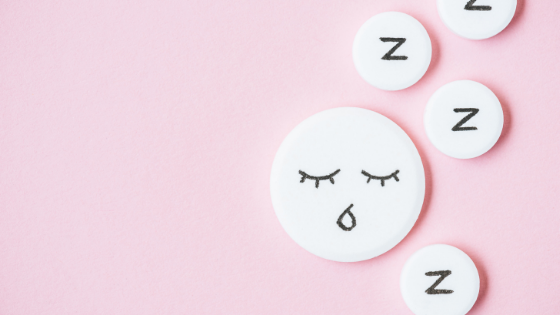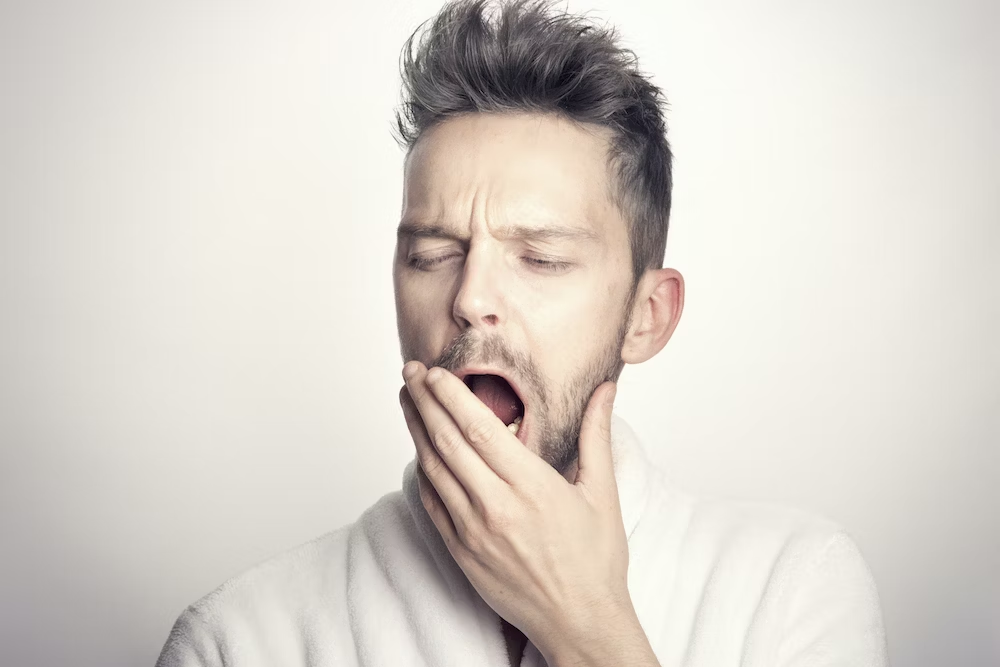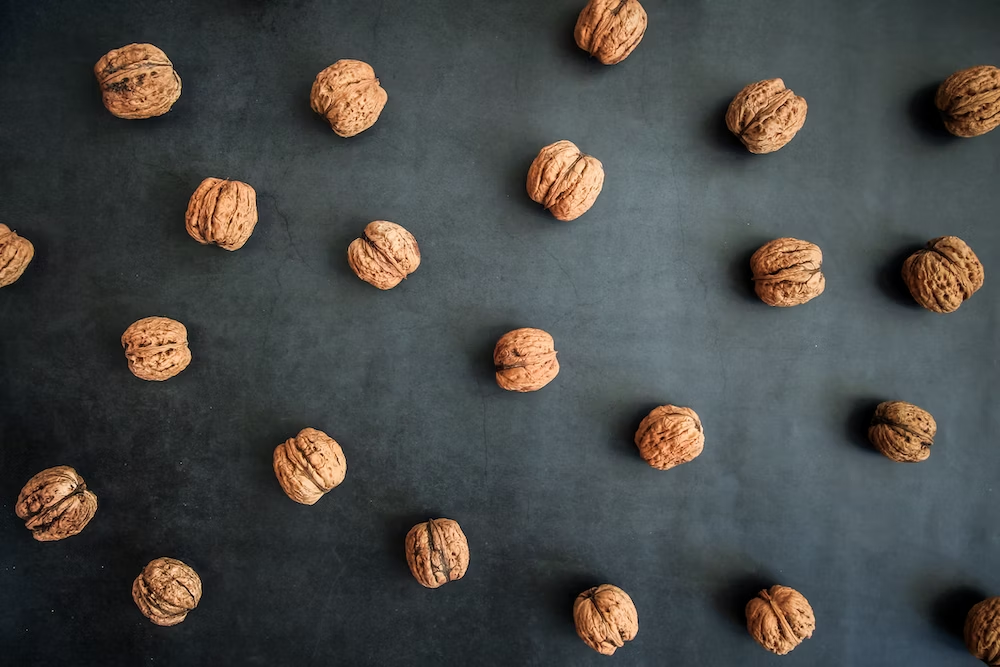


If you’re being deprived of sleep (or even if you are right now), you realize that you can’t operate normally; it’s practically self-evident, as we all recognize it.
However, given the changes you’ve noticed in yourself, it seems critical to understand how lack of sleep impacts you. You’d be surprised at how important sleep is to our daily functioning and wellbeing!
The Connection With Our Body

Humans slept approx 10 hours every night before the discovery of the light bulb. Many of us only get 5 hours of sleep these days.
The fact that it’s a contemporary switch in routine has several implications, the most important of which is that it’s most likely not how our bodies were supposed to work.
Despite the fact that scientists are currently researching the notions of sleep demands, growing data suggests that sleep might have a significant impact on our general health. Sleep deprivation can have a massive effect on our metabolism, increasing our risk of being overweight and, as a result, lifestyle diseases such as diabetes.
For those who enjoy going to bed, here’s some more proof: sleeping is undoubtedly among the most significant activities of the day when it comes to regulating physiological functions, which further illustrates, when sleeping why you burn calories.
Even when you’re faced with a major decision and are advised to “sleep on it,” there’s a scientific basis for that advice. Sleep is necessary for the structuring and elucidation of our emotions and intellect, which is a critical feature of our own wellbeing. Riding after a period of little sleep is the same as riding after intoxication!
To comprehend why sleep has such a profound impact on our lives, we must first know what sleep does to us.
What Happens In The Backend While We Sleep

Melatonin is a hormone that makes us sleepy. When we fall asleep, we enter a sleep cycle with two distinct states:
Rapid Eye Movement: REM sleep is a state of consciousness in which our muscles relax but our brain remains active — this is when we dream while sleeping.
Non Rapid Eye Movement (NREM): Our bodies heal themselves, regrow tissues, develop bone and muscle, manage hormones, and enhance the immune system.
NREM and REM sleep alternate for 60–90 minutes each during the night, so 7-8 hours of sleep would contain four to five sleep cycles.
Hormones & Lack Of Sleep

Experts refer to carrying a hefty load of tiredness around with you day after day as “sleep loss.” When you sleep less than 6 hours each night or have poor sleep quality in general, this can happen (with or without sleep disorders including insomnia and sleep apnea).
Sleep influences at least ten hormones that we are aware of, so it’s easy to see how sleep disorders are linked to hormonal issues like impotence. PCOS, or Polycystic Ovary Syndrome, is a condition that affects women and causes skin problems and weight increase. Sleep disturbances can lead to depression by altering serotonin, a mood-regulating hormone.
Sleep loss has also been linked to obesity, possibly due to changes in major appetite hormones (e.g., ghrelin and leptin) that increase the sensation of hunger. This link is stronger in children, whose growth and development are further hampered by sleep habits that influence the production of growth hormones.

Sleep loss has been linked to inflammation, insulin resistance, glucose metabolism and abdominal fat, which accumulates around our organs and causes a variety of health issues. It’s what causes diseases like diabetes, heart disease, and cancer, as well as other lifestyle diseases.
Exercise with sleep deprivation? Sleep deprivation is thought to reduce protein synthesis while increasing protein breakdown, favoring muscle loss. This slows muscle repair following exercise-induced injury.
Furthermore, the 24-hour sleep/wake cycle, often known as the ‘circadian cycle,’ is responsible for 10-15% of our genes!
The cause-and-effect relationships of these correlations are yet unknown, but one thing is certain: sleep loss is a factor in many of today’s problems.
What can we do?
1] Nutrition

Amino Acids:
L-theanine helps you sleep better, but it’s only found in tea (which has caffeine). As a result, decaffeinated green teas, particularly those containing chamomile and ginseng, may be beneficial.
Taurine is thought to have a calming impact on the body. Red meat, seafood, eggs, and supplements all contain this.
Minerals & Vitamins:
Experts believe there is a link between our magnesium and calcium levels and how well we sleep. Dried fruits, bananas, dairy products, whole grains, seeds, nuts, and dark leafy greens, to mention a few, are high in these minerals.
Vitamin D3 promotes sleep quality by altering the sleep-related portion of the brain. This can be found in a variety of foods, including cheese, fatty fish, eggs, red meats, mushrooms, as well as in sunlight.
Sleep issues have been linked to B vitamin deficiencies, particularly those of B12 and B6. Root and leafy vegetables, fish, meat, and some fruits are natural sources of vitamin B6, while animal products like dairy, fish, meat are sources for vitamin B12.
Macronutrients:
According to several researches, if we eat more protein and fat during the day and more carbohydrates at night, we will sleep better. However, because these studies are so varied and contradictory, we recommend sticking to whole grains, which won’t spike your sugar intake.
2] Before going to sleep, unwind.

Any type of cognitive stimulation, even something as simple as watching a movie or your favorite TV show, keeps your brain engaged, which is the absolute reverse of what it, should be. Worrying too much will also keep you awake because it stimulates the stress hormone cortisol.
Use your favorite relaxation technique before going to bed: breath deep, do stretches, listen to soothing music, take a warm bath – basically anything that doesn’t need too much thought.
3] Make sleep a priority and keep it under control.

Attempting to catch up on sleep on weekends will not solve the fundamental problem. Because humans are creatures of habit, the body perceives sleep debt followed by excessive sleep as a cycle disruption. You will be more exhausted the following week if you slept in on the weekend. So, try to establish a schedule by gradually sleeping earlier each night until you obtain more than 6 hours of sleep.
4] Switch off the lights.

Melatonin is suppressed by light, which disturbs the sleep cycle. This is also a cause to sleep at night (rather than during the day) in order to get better sleep.
Consult an expert nutritionist on my team at +91-9743430000 who can help you understand and identify foods that works best with your body and help you achieve your health goals.
Ryan Fernando is an Award-winning celebrity Sports Nutritionist with 2GUINNESS world record and 2 Olympic medals under his belt. His client list include Olympic wrestler Sushil Kumar, cricketer Shikhar Dhawan & bollywood superstars Aamir Khan & Abhishek Bachchan. He is Chief Nutritionist at QUA Nutrition Signature Clinics.
©2023 All Rights Reserved Ryan Fernando. Designed and Developed by Floral Web Services